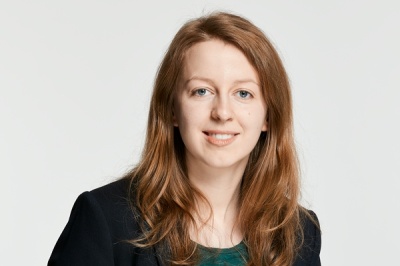Posted on February 12, 2024
This January saw Trade Mark Attorneys across the UK dust off their copies of the Old Testament as a couple of so-called ‘David and Goliath’ trade mark cases hit the national headlines.
At the turn of year, The University of Cambridge’s approach to its IP enforcement was publicised in numerous national and local news providers, adding kindling to the ever-smouldering fire between Town and Gown in the city. Of particular note was the costly 18-month legal battle between Cambridge Neurotech Ltd and the University concerning the former’s UK trade mark application for ‘Cambridge Neurotech’ covering scientific apparatus and neuroscience research services. The University filed 350 pages of evidence to support its case against the Application, racking up a substantial legal bill of £30,000 for the neurotech company, which is led by its founder Dr Tahl Holtzman.
BBC coverage highlighted that this dispute joins a considerable list of trade mark applications opposed by the University—including ‘Cambridge Spark’, ‘Cambridge Quantum Computing’ and ‘Cambridge Rowing’—with aggrieved local business owners criticising its “selfish” attempts to try and “own Cambridge”, and Dr Holtzman expressing his ‘bewilderment’ at the “Lord-and-peasants kind of situation”. A spokesman for the University stated that it does not claim rights to the word ‘Cambridge’ in all areas of commercial activity, although polling has demonstrated that “the vast majority of people associate the word ‘Cambridge’ with the University, especially in education, research, innovation and related areas”. Consequently, the University takes legal action if it believes its “rights are being infringed, or if organisations are trying to trade on the University’s reputation”.
Ultimately, Dr Holtzman’s application achieved registration for its scientific apparatus goods. It was, however, successfully opposed for its research services, with the UK Intellectual Property Office (UKIPO) determining that the relevant public would be “likely to perceive [the applicant’s mark] as indicating services that are provided by the University or with its consent, [or through] an undertaking linked to the University”.
It remains to be seen whether the sudden national attention given to its IP enforcement strategy will produce a softening in the University’s approach, although the outcome of the dispute with Cambridge Neurotech Ltd will likely serve as some level of vindication for maintaining the status quo.

Towards the end of January, national attention moved east of the Fens, to Norwich-based garden supply business L V Bespoke Limited, which recently won its 18-month legal battle against Louis Vuitton. Owned by couple Lawrence and Victoria Osborne, the company’s application for its ‘L V Bespoke’ logo covering plants and metal hardware for gardens received an opposition from the French fashion giant in March 2022. Louis Vuitton argued that the inclusion of the letters ‘L V’ in the application would be understood by consumers as representing the brand ‘Louis Vuitton’, giving rise to confusion amongst consumers.
The Hearing Officer at the UKIPO found that Louis Vuitton failed “on all grounds”, including reputation, to substantiate the opposition. The fashion house has accordingly been ordered to pay £4,000 in costs to the Osbornes although, speaking to the BBC, Mrs Osborne has said that her “ultimate goal is to get an apology from them.”
Perhaps, therefore, the events of January 2024 will inspire a series of belated New Year’s resolutions for big brands and small business alike. Big brand owners—the ‘Goliaths’ of the commercial world—should strive to be judicious in their choice of legal battles, as there is significant potential for negative publicity to erode the perceived benefits of particularly aggressive brand enforcement. Likewise, small business—the ‘Davids’—should be reminded to always conduct clearance searches before adopting any new brand to minimise the possibility of conflict with third parties, especially litigious big brands with deep pockets.
It seems, however, that the events of January are likely to be just a continuation of these sorts of disputes, and indeed disputes at the UKIPO more generally, as covered in our article last year.
We are a European firm and assist our clients to protect their IP rights in the UK, Europe and worldwide from our offices in the UK and The Netherlands and through our international network of trusted local attorneys.
Get in touch if you would like to discuss your innovations and brand protection further.
